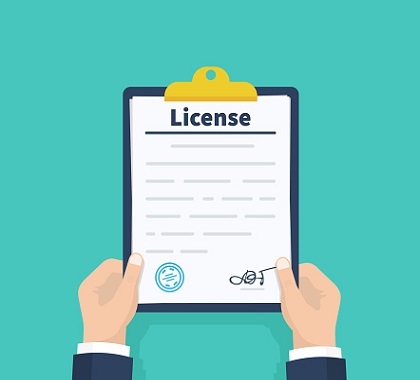In some states, entrepreneurs can have their professional licenses denied or revoked if they default on their student loans. According to U.S. News and World Report, 13 states have such laws on the books. Moreover, The New York Times found more than 8,700 borrowers nationally lost their credentials for defaulting on their student loans in recent years, a number that is likely to grow as more students struggle to repay their outstanding loans.
Fortunately, numerous reforms are being considered at the state and federal levels that would make it more difficult for delinquent borrowers to lose their professional credentials. In Texas, state lawmakers have proposed several bills that would eliminate the practice altogether. The primary bill moving through the Texas Legislature is House Bill 218, which would end the use of student loan default or breach of a student loan repayment or scholarship as grounds for nonrenewal of a professional or occupational license.
Rejecting or revoking a license application because of student loan debt is counterintuitive, because it makes it more difficult for individuals to repay these loans because they are less capable of generating income.
Using student loan debt as leverage for revoking professional licenses is not a minor problem, either. In fact, more than 4,200 Texans were at risk of losing their licenses to work in 2017 alone because they were in default on their loan payments, according to a March report from the Texas Tribune.
Occupational licensing requirements are barriers to entrepreneurship, and they exist across numerous industries. Countless studies show occupational licensing requirements make it much more difficult for individuals to start or expand businesses. Further, as The Hamilton Project noted in a 2015 article, Morris Kleiner, a University of Minnesota professor and a chair in labor policy for the AFL-CIO, examined the effects of occupational licensing laws on the price and quality of products and found these laws unnecessarily harm consumers by raising the price of goods and services without providing any appreciable quality increases.
Eliminating excessive licensing requirements and permitting voluntary certification are viable options that would empower consumers to choose the best services on their own, thereby allowing the free market to flourish. Draconian occupational regulations such as registration, certification permits, and licensure give bureaucrats undue influence over dozens of industries and scores of occupations. This creates an economic environment rife with cronyism and makes it exceedingly difficult for new and existing businesses to operate or expand.
Occupational licensing laws have an especially strong effect on lower-income consumers and entrepreneurs. On average, low- and medium-income jobseekers in licensed professions are required to spend nine months in education or training, pass an exam, and pay more than $200 in fees, according to the Institute for Justice.
Student loan debt affects millions of Americans. There is currently around $1.56 trillion in outstanding student loan debt owed nationwide. According to the latest numbers from the Department of Education, the default rate among all students who recently graduated or left school is 10.8 percent. Blocking these people from receiving licenses that could help pay their debts is poor public policy.
H.B. 218 would remove an unnecessary barrier for Texas entrepreneurs and jobseekers by ending the use of student loan default as a reason to reject new or renewed licenses, which would substantially increase their odds of repaying their student loans and allow for greater economic growth.
The following documents examine occupational licensing in greater detail.
The Effects of Occupational Licensure on Competition, Consumers, and the Workforce
https://www.mercatus.org/publications/effects-occupational-licensure-competition-consumers-and-workforce
This paper by the Mercatus Center at George Mason University examines the costs and benefits of occupational licensing regulations on consumers and the economy and workforce. It also recommends areas in need of reform.
Occupational Licensing: Ranking the States and Exploring Alternatives
https://heartland.org/publications-resources/publications/occupational-licensing-ranking-the-states-and-exploring-alternatives
Adam Summers of the Reason Foundation addresses the impact of occupational licensing on the labor market.
The Prevalence and Effects of Occupational Licensing
https://heartland.org/publications-resources/publications/the-prevalence-and-effects-of-occupational-licensing
Morris Kleiner and Alan Krueger note research shows nearly 30 percent of the U.S. workforce is required to obtain a license to work.
License to Work: A National Study of Burdens from Occupational Licensing
https://heartland.org/publications-resources/publications/license-to-work-a-national-study-of-burdens-from-occupational-licensing-2
The Institute for Justice conducted a national study to measure the degree to which occupational licensing laws burden low-income workers. The authors found “the barriers imposed by licensure schemes on those wishing to enter the 102 lower-income occupations we studied are not only widespread but often severe, arbitrary and irrational.”
Nothing in this Research & Commentary is intended to influence the passage of legislation, and it does not necessarily represent the views of The Heartland Institute. For further information on this and other topics, visit the Budget & Tax News website, The Heartland Institute’s website, and PolicyBot, Heartland’s free online research database.
The Heartland Institute can send an expert to your state to testify or brief your caucus; host an event in your state, or send you further information on a topic. Please don’t hesitate to contact us if we can be of assistance! If you have any questions or comments, contact Arianna Wilkerson, a state government relations manager at The Heartland Institute, at [email protected] or 312/377-4000.




